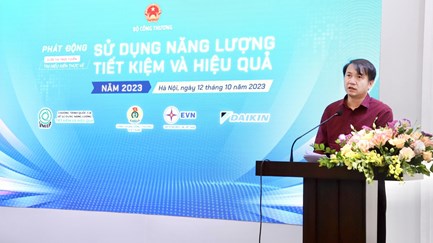-

U.S. airmen are one step closer to going off the grid. The Air Force Academy in Colorado Springs, Colo., announced the completion of an on-base solar energy farm June 13 that generates up to 6 megawatts of solar power.
-

The US Navy requires stainless steel for all its PV projects. The project was awarded to AE by Maui Solar Energy Systems, the solar integrator that will construct the project.
-

Bic Camera Inc.'s Ikebukuro head office in Toshima Ward reported that sales of air conditioners since April have risen 30 percent over a year ago and those of electric fans posted fourfold to fivefold increases. Highly energy-efficient refrigerators are also in big demand.
-

The wait is nearly over. Car buyers will soon be able to compare models based on government certified fuel efficiency labels before making a final choice without having to wonder which review to trust or go by sales talk.
-

-

The companies say they are supportive of the directive, which “will hopefully constitute an important step towards achieving the EU’s 20% energy savings target by 2020”.
-

As of 2010, 57% of electricity in Latin America and the Caribbean stems from hydro sources while another 40% comes from thermoelectric power plants using fossil fuels and natural gas. Of the remainder, 2% comes from nuclear stations and 1% from wind, solar and geothermal plants.
-

"It basically becomes a stovetop, and you can heat anything you need to," said Sam Major, a member of the team with seniors Daniel Rist, David Luker and William Dunk. "As long as the autoclave reaches 121 Celsius (250 F) for 30 minutes (the standard set by the Centers for Disease Control and Prevention), everything should be sterile, and we've found we're able to do that pretty easily.
-

Wadebridge in Cornwall has moved another step towards becoming the first solar powered town in the UK, as PV installations begin to go up across the municipality. The area aims to generate at least a third of its electricity from solar and wind power by 2015, which is the equivalent of 15,000MWh a year. By generating renewable energy at this level, Wadebridge will be able to benefit significantly from the UK’s feed-in tariff, enabling significant cash contributions for local community projects.
-

The Stevens Institute of Technology Chemical Engineering Senior Design team of Rachel Kenion, Liana Vaccari, and Katie Van Strander designed, fabricated, and tested biochar electrodes for supercapacitors. The group is advised by Dr. Woo Lee, the George Meade Bond Professor of Chemical Engineering and Materials Science.
-

Ministers have tried to address public lack of trust in energy companies by offering assurances about the “Green Deal” – a policy designed to improve the energy efficiency of homes. Under this plan, any householder will be able to spend up to £10,000 making their home more energy efficient, funded by the savings from future gas and electricity bills.
-

According to the DOE’s statement, the $25 million it is providing will need to be matched by the winning universities, national labs, private companies or others who apply and are accepted for the program. Initially, the grant recipients are meant to focus on three specific areas, including building energy efficiency, second-generation biofuels and solar energy.
-

Germany's solar photovoltaic (PV) industry now employs more workers than steel production in the USA. With over 100,000 "green jobs" in PV alone, around 75 percent of European solar cells and modules as well as countless components are made in Germany. Record-breaking domestic demand is a key industry driver, with 7.4 GWp of PV capacity installed in 2010.
-

A series of new, larger turbines with longer blades have been launched into the market recently as manufacturers strive to deliver the lowest cost of energy with the next generation of designs. London, UK A trend towards larger capacity turbines with longer blades and larger rotor diameters has been long established, with OEMs continuing to offer existing machines with a range of rotor diameters. But now, a new generation of still larger machines has been unveiled.
-

The Asian Development Bank (ADB) is backing a drive to increase solar energy capacity in Asia-Pacific by six-fold to 3,000 megawatts by 2013.The ADB plans to provide up to US$2.25 billion in financing for solar projects and draw in a further $6.75 billion, mainly from the private sector, said Xiaoyu Zhao, vice-president for operations.
-

The US administration will only buy vehicles using alternative energy sources to equip its fleet by the end of 2015, President Barack Obama announced Tuesday. The timeline is part of Obama's plan to cut US oil imports by a third by 2025 and put a million advanced vehicles on the road by 2015.
-

The idea is simple, says Kevin Moeller, PhD, and yet it has huge implications. All we are recommending is using photovoltaic cells (clean energy) to power electrochemical reactions (clean chemistry). Moeller is the first to admit this isn't new science.
"But we hope to change the way people do this kind of chemistry by making a connection for them between two existing technologies," he says.
-

The people of Japan may be some of the most energy conscious in the world, and now Panasonic, with the help of eight partner companies, is looking to make them even greener. The project, which would as much re-building as it would be building, aims to turn on of Panasonic's former factory sites into a green smart town.
-

The Rome-based Global Bioenergy Partnership today released a voluntary policy for producing and using biomass and biofuels in ways that don’t add to climate change or affect food prices. The partnership, established in 2005 by the Group of Eight nations and five emerging economies, also includes 13 international organizations and institutions.
-

The 26th European Photovoltaic Solar Energy Conference and Exhibition (26th EU PVSEC) will take place in Hamburg, Germany, at the CCH Congress Centre and International Fair Hamburg. The Conference extends over 5 days from 5-9 September 2011, the Exhibition runs over 4 days from 5-8 September 2011.
-

Scientists at Empa, the Swiss Federal Laboratories for Materials Science and Technology, have further boosted the energy conversion efficiency of flexible solar cells made of copper indium gallium (di)selenide (also known as CIGS) to a new world record of 18.7 percent -- a significant improvement over the previous record of 17.6 percent achieved by the same team in June 2010.
-

Two months on from the natural disasters that ravaged Japan’s infrastructure and economy, its government has said it is determined to plough forward with efforts in the field of sustainable development through trilateral cooperation. The country has committed to promote the use of renewable energy and energy efficiency to reach sustainable growth in the country as it rebuilds itself, officials said in a statement on Sunday.
-

Germany is coping without about three quarters of its nuclear power capacity by burning more climate-warming coal, reaping the rewards of renewables investments, and importing more French atomic energy. The shutdown over the weekend of another nuclear plant means almost 16 gigawatts of German nuclear power capacity was offline Monday, with nearly half of the capacity ordered to shut by the government in reaction to the Fukushima nuclear disaster in March.

 Develop sales and marketing strategies for energy efficiency equipment and solution suppliers
Develop sales and marketing strategies for energy efficiency equipment and solution suppliers
 Enhancing capacity for Bac A Bank Officers in Risk Sharing Facility Implementation
Enhancing capacity for Bac A Bank Officers in Risk Sharing Facility Implementation
 Capacity Building for Program Implementing Entity
Capacity Building for Program Implementing Entity
 Promoting Energy Efficiency for Technical Staff of Brick and Ceramic Sector
Promoting Energy Efficiency for Technical Staff of Brick and Ceramic Sector
 Energy efficiency and sustainable development in textile sector
Energy efficiency and sustainable development in textile sector

























 Enhancing capacity to develop and implement energy efficiency policies at local level
Enhancing capacity to develop and implement energy efficiency policies at local level
 Bosch Vietnam Plant Benefits from Investment in Energy Efficiency
Bosch Vietnam Plant Benefits from Investment in Energy Efficiency
 Webinar 2: “Financial Support for Energy Efficiency Enterprises – Opportunities and Challenges”
Webinar 2: “Financial Support for Energy Efficiency Enterprises – Opportunities and Challenges”
 Vietnamese enterprises achieve green growth and cut costs through energy efficiency
Vietnamese enterprises achieve green growth and cut costs through energy efficiency
 Promoting Energy Efficiency for Technical Staff of Brick and Ceramic Sector
Promoting Energy Efficiency for Technical Staff of Brick and Ceramic Sector
 Capacity Building for Program Implementing Entity
Capacity Building for Program Implementing Entity